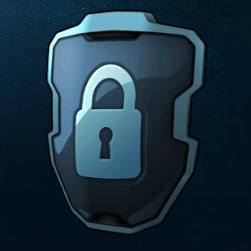
Without a doubt one of the biggest pieces of news that appeared this week was the hacker attack suffered by Blizzard’s Battle.net online network, as nefarious individuals managed to access email addresses, as well as passwords (which were encrypted, thankfully) and plenty of other information about the service’s users.
This isn’t the first time a large network has been the victim of an organized attack, as PlayStation Network users still remember the embarrassing incident suffered by Sony’s online service last year, nor is it the first time a game has been targeted, as Trion Worlds’ Rift also fell prey to such an attack.
Nowadays, all companies want to run their own online networks, starting with hardware manufacturers like Microsoft (Xbox Live), Sony (PSN), Nintendo (the upcoming Wii U network), and reaching third-party developers, including Blizzard (Battle.net) or Ubisoft (Uplay), not to mention publishers that have their own digital distribution services, like Valve (Steam) or EA (Origin).
As such, given this wide range of mandatory networks, gamers often use the same account name and, more often than not, the same password. Yes, it’s better to use a different password/name/email address for every one of your accounts, but, given the fact that people are forced to make them in order to play their games, many don’t want to juggle with their online identities.
Would I like to have more security on all of my different accounts? Sure, but not if it means creating dozens of email addresses as well as different usernames and passwords.
As such, in order to at least make the lives of their customers easier, companies who are running their own online networks should make the security of their systems their highest priority.
If I have an account with a certain network, it means I paid money to that company for a game, whether it’s Portal 2, Mass Effect 3, Diablo 3, Driver: San Francisco, or various downloadable games for the PS3, Xbox 360 or Nintendo Wii. As such, I want my confidential data to be kept confidential.
Sadly, seeing as how it’s barely possible, I’m going to continue regularly changing my passwords and keeping them on a notepad. In the digital age, it’s often a good idea to go old school every now and then.
How do you keep your various accounts safe? Share your opinions below.
Via: Weekend Reading: Battle.net Hacking and Security in Gaming
Tidak ada komentar:
Posting Komentar